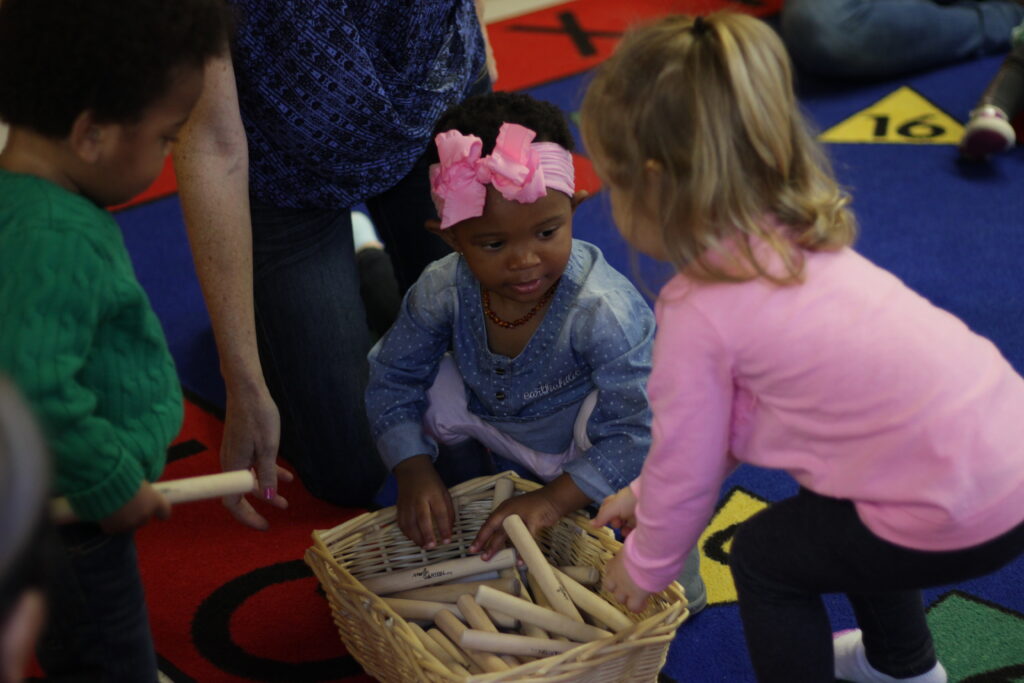Most teachers, especially teachers of children, will attest that they did not get into education for the money. In an Association of Teachers and Lecturers survey, 80 percent of educators said that they teach because they enjoy working with children, while 75 percent said they were motivated by a desire to make a difference for children. The combination of these two factors can be credibly linked to the amount of passion a teacher has for their job. Nationally recognized neuroscience educator Dee Joy Coulter, Ed. D., notes that this passion is amazingly frequent among children’s music teachers. Teachers with passion inspire students to seek and experience new ideas. Therefore, it’s a motivating factor that is necessary for high quality learning and teaching. Over the next several weeks, Dr. Coulter’s writings will guide us through some key issues these early childhood music teachers face, while exploring ways to meet these concerns.
Whatever Children Can Learn, They Should Learn – and the Earlier the Better
A young child’s way of learning is one of absorbing what is around them in an unpretentious and almost unconscious way. As such, they are so busy observing the world around them that they do not yet notice caregivers and teachers observing them. As this point, it does not occur to their wonderful beginner’s mind to begin observing themselves. It’s important for children’s music teachers to keep things this way for as long as possible, for as they become self-conscious, children’s minds give way to reasoning and shift to a more impressionable approach to learning.
The earlier stage of innocence is where passion for teaching music to children plays a most important role. At this point, they are still deeply impressionable, absorbing the educator themselves as much as what is being offered. Therefore, strive to offer children only the most inspired musical experiences that you really love, so that their early learning minds sense that joy and enthusiasm. Watch what they are inspired by, paying close attention to their responses. If there are things that do not inspire them, trust their taste. Young children are instinctively drawn to what they need next in development. This will give the observant music teacher clues as what to teach next and what to postpone. At this point, your passion is what you want to inspire in children, because it will expose their minds to that same excitement and a long-term love for music.

Most Children do not have to be Taught How to Pay Attention
It’s a fallacy that most children have short attention spans and therefore need to be taught to learn from a music lesson. If provided fundamentally nourishing information in a passionate way, there is an amazing quality and duration of attention children can give in early childhood music classes. Rather than trying to teach children to listen, music teachers should offer something welcoming and playful that engages their interest and sustains their attention. If offered activities and objects in a nourishing environment, children exhibit surprisingly long attentions spans. In fact, music therapy is often used with children that exhibit developmental disabilities such as ADHD or Autism to grasp and hold their attention. Passion again has a key role to play in teaching at this point.
Over the next several weeks, we will continue to explore several other key issues that early childhood music educators and studio owners face when instructing children. To effectively address all of these issues, passion is perhaps the most important tool a teacher can have to inspire young minds to also love music. A young child’s mind is constantly open to new and exciting concepts without bias, instinctively picking up on a music teacher’s enthusiasm and excitement. When music is provided in a fundamentally inspiring and nourishing way, children have a great capacity to pay attention for long periods of time and absorb information.
This series of articles are based on the article DEFENDING the MAGIC: CURRENT ISSUES in EARLY CHILDHOOD EDUCATION, which appeared in Early Childhood Connections and written by Dee Joy Coulter, Ed. D. For more information on Dr. Coulter and her insights into early childhood music education, visit https://embraceyourbrain.com/





